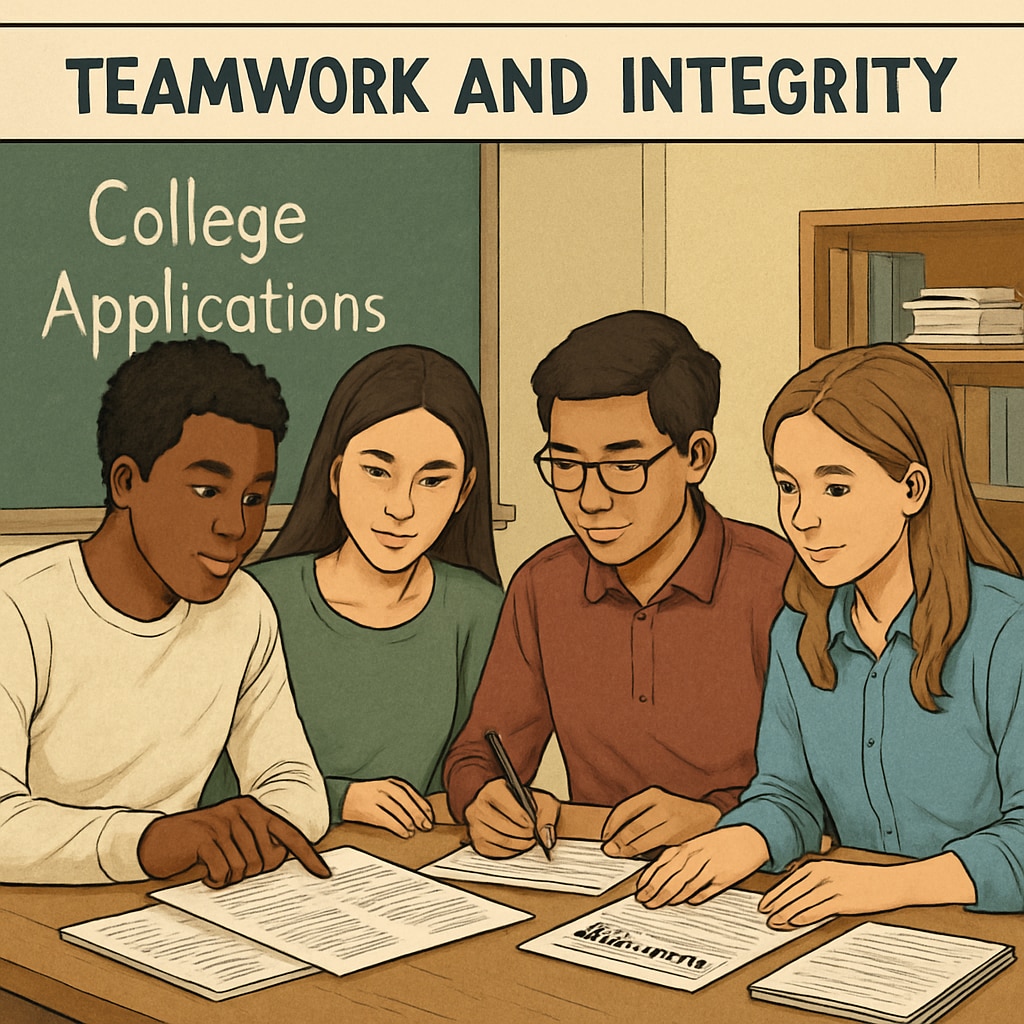In today’s competitive college admissions landscape, the temptation to embellish or fabricate details in applications is a growing concern. Disregarding integrity in pursuit of acceptance can have devastating effects on students’ futures. Dishonesty in college applications—whether through exaggerated achievements or outright falsification—not only risks immediate rejection but also jeopardizes long-term academic and professional goals. This article delves into the far-reaching consequences of this unethical practice and highlights the importance of honesty for students, parents, and educators alike.

The Risks of Falsifying Information in College Applications
Submitting false information on college applications may seem like a shortcut to success, but it is fraught with risks. Institutions often conduct thorough checks, including interviews, background reviews, and cross-referencing details with external sources. Once discrepancies are discovered, the consequences can be severe:
- Immediate Rejection: Many colleges have zero tolerance policies for dishonesty in applications. Discovery of false information often results in outright rejection.
- Revocation of Admission: Even if a student gains admission, colleges can rescind their offer if dishonesty is uncovered later.
- Damage to Reputation: A tarnished reputation can impact future applications for other institutions or scholarship opportunities.
- Legal Consequences: In extreme cases, misrepresentation can lead to civil or criminal penalties, especially if financial aid fraud is involved.
For example, high-profile cases have demonstrated how dishonesty in college admissions can not only ruin individual careers but also spark broader ethical debates in education systems. To learn more about college admissions integrity, visit Britannica’s guide to college admissions.
Long-Term Impacts of Dishonesty
While the immediate consequences of dishonesty in college applications are severe, the long-term effects can be equally damaging. Students who use unethical means to gain admission often face challenges in sustaining success in environments for which they are unprepared. For instance:
- Academic Struggles: Students who falsify academic achievements may find themselves unable to keep up with rigorous coursework.
- Professional Credibility: Employers value integrity as much as qualifications. Falsified academic records can lead to disqualification in job applications.
- Loss of Self-Worth: Living with the guilt of deception can negatively impact mental health and self-confidence.
Additionally, institutions that discover dishonesty often share this information within networks, further limiting future opportunities for the student. For insights into ethics in education, explore Wikipedia’s article on academic integrity.

Promoting Honesty in College Applications
The responsibility to uphold integrity in college applications lies with both students and their support systems. Parents, educators, and mentors play vital roles in fostering ethical decision-making and ensuring honest representation in applications. Here are actionable steps to encourage integrity:
- Focus on Genuine Achievements: Highlight real accomplishments rather than attempting to embellish or fabricate details.
- Seek Guidance: Engage with counselors or mentors who can provide advice on presenting strengths authentically.
- Understand Consequences: Educate students about the potential fallout of dishonesty in applications.
- Build Confidence: Encourage students to embrace their unique qualities and focus on finding the right fit for their abilities.
As a result, students who approach their applications with honesty and authenticity are more likely to find institutions that align with their talents and aspirations, paving the way for success both academically and professionally.
Integrity in education is not just about gaining acceptance—it is about building character and laying the foundation for lifelong success. Upholding honesty in college applications is a crucial step in creating a future rooted in trust and self-respect.


